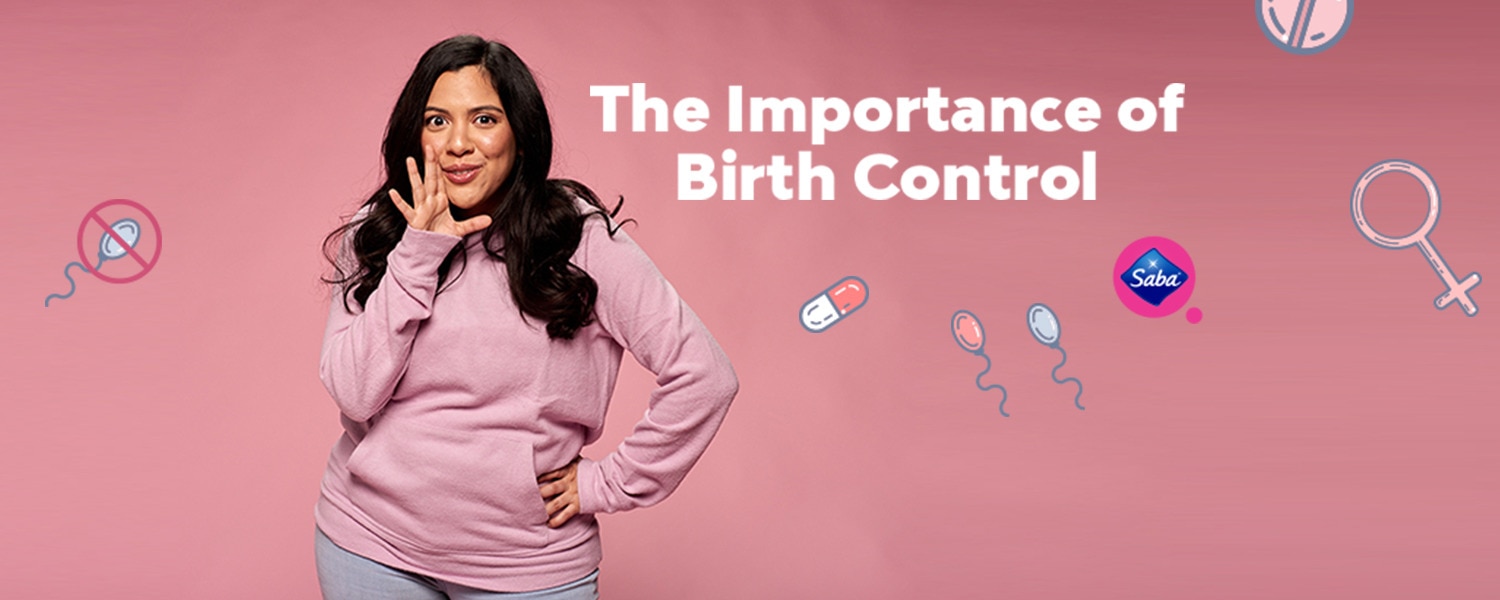The Importance Of Birth Control

Saba® makes you feel #CómodaContigo.
Family planning is a basic human right that benefits everyone.
The physical, mental, and social well-being of men, women, and children often improve when couples have fewer children. Since they have fewer children, this allows parents to provide a higher level of care. Proper use of family planning has also been shown to help reduce maternal and child mortality and illness.
Contraceptive (birth control) methods are used to prevent pregnancy and there are several types, so it is important to know the pros and cons of each.
- Abstinence: This is the only 100% effective method of birth control since there is no sex involved at all.
- Hormonal: These include birth control pills, injections, skin patches, implants, and vaginal rings. There are also hormonal IUDs that work by releasing small amounts of hormones. Birth control methods that use hormones are very effective in preventing pregnancy.
- Intrauterine Devices (IUDs): They are inserted into the uterus and there are two types, copper and hormonal.
- Barrier Methods: These include condoms, diaphragms, and cervical caps. In general, these are not as effective in preventing pregnancy as IUDs or hormonal methods, but condoms do help prevent sexually transmitted diseases.
- Natural Family Planning: Also called the Calendar Method. Although it is not a contraceptive method as such, it can be effective if you and your partner are very careful. You must keep an excellent track of your menstrual cycle to know when you are fertile. And when you’re in the fertile phase, avoid having sex or use a barrier method of birth control.
- Permanent Contraceptive Methods: They provide you protection against pregnancy. Men can get a vasectomy and women can have their tubes tied. This is a good option if you are certain that you do not want children or do not want more children.
- Emergency Contraception: This is an alternative way to avoid pregnancy in case you forget to use birth control or the barrier method fails (for example, if the condom breaks). But it is not considered or recommended to use as a contraceptive method, and should only be used in an emergency.
The best contraceptive method is the one that suits you. When choosing the best birth control method, consider such factors as effectiveness, the desire to have or not have children, potential side effects or benefits, and whether or not it protects you against sexually transmitted infections and diseases.
Certain things may restrict the use of certain methods of birth control - among them are: smoking, pregnancy, breastfeeding, heart disease, blood pressure, migraines, clotting problems (thrombosis), or a history of breast cancer.
Before trying a birth control method, visit a gynecologist to discuss which one is best for you.
